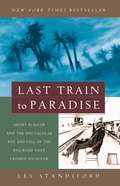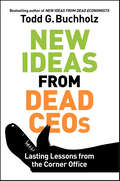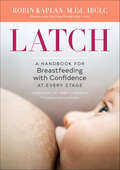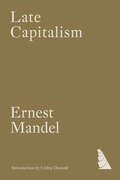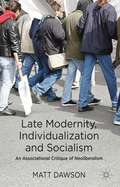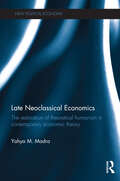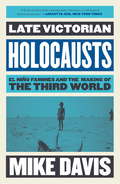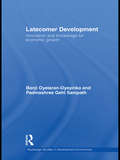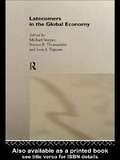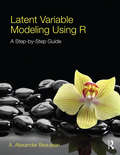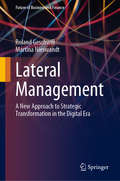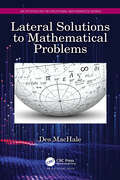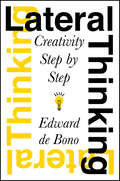- Table View
- List View
Last Stand: Ted Turner's Quest To Save A Troubled Planet
by Todd WilkinsonEntrepreneur and media mogul Ted Turner has commanded global attention for his dramatic personality, his founding of CNN, his marriage to Jane Fonda, and his company's merger with Time Warner. But his green resume has gone largely ignored, even while his role as a pioneering eco-capitalist means more to Turner than any other aspect of his legacy. He currently owns more than two million acres of private land (more than any other individual in America), and his bison herd exceeds 50,000 head, the largest in history. He donated $1 billion to help save the UN, and has recorded dozens of other firsts with regard to wildlife conservation, fighting nukes, and assisting the poor. He calls global warming the most dire threat facing humanity, and says that the tycoons of the future will be minted in the development of green, alternative renewable energy. Last Stand goes behind the scenes into Turner's private life, exploring the man's accomplishments and his motivations, showing the world a fascinating and flawed, fully three-dimensional character. From barnstorming the country with T. Boone Pickens on behalf of green energy to a pivotal night when he considered suicide, Turner is not the man the public believes him to be. Through Turner's eyes, the reader is asked to consider another way of thinking about the environment, our obligations to help others in need, and the grave challenges threatening the survival of civilization.
Last Train to Paradise: Henry Flagler and the Spectacular Rise and Fall of the Railroad that Crossed an Ocean
by Les StandifordThe story of the crazy idea to build a railroad over open ocean in the Florida Keys, its completion, and its complete destruction 22 years later in a hurricane is well told by author and Florida resident Standiford. Though the central protagonist is the oil tycoon Henry Flagler, who was a pivotal figure in the development of Florida's coast, Standiford never loses sight of the experience of the railroad's less well-known engineers and workers. Annotation c. Book News, Inc. , Portland, OR (booknews. com)
Lasting Legacy to the Carolinas: The Duke Endowment, 1924–1994
by Robert F. DurdenLike the majority of the founders of large philanthropic foundations in the United States, James B. Duke assumed that the Duke Endowment, which he established in 1924, would continue its charitable activity forever. Lasting Legacy to the Carolinas is an examination of the history of this foundation and the ways in which it has--and has not--followed Duke's original design.In this volume, Robert F. Durden explores how the propriety of linking together a tax-free foundation and an investor-owned, profit-seeking business like the Duke Power Company has significantly changed over the course of the century. Explaining the implications of the Tax Reform Act of 1969 for J. B. Duke's dream, Durden shows how the philanthropist's plan to have the Duke Endowment virtually own and ultimately control Duke Power (which, in turn, would supply most of the Endowment's income) dissolved after the death of daughter Doris Duke in 1993, when the trustees of the Endowment finally had the unanimous votes needed to sever that tie. Although the Endowment's philanthropic projects--higher education (including Duke University), hospitals and health care, orphan and child care in both North and South Carolina, and the rural Methodist church in North Carolina--continue to be served, this study explains the impact of a century of political and social change on one man's innovative charitable intentions. It is also a testimony to the many staff members and trustees who have invested their own time and creative energies into further benefiting these causes, despite decades of inevitable challenges to the Endowment.This third volume of Durden's trilogy relating to the Dukes of Durham will inform not only those interested in the continuing legacy of this remarkable family but also those involved with philanthropic boards, charitable endowments, medical care, child-care institutions, the rural church, and higher education.
Lasting Lessons from the Corner Office: Essential Wisdom from the Twentieth Century's Greatest Entrepreneurs
by Todd G. BuchholzNew Ideas from Dead CEOs uncovers the secrets of success of great CEOs by giving readers an intimate look at their professional and personal lives. Why did Ray Kroc's plan for McDonald's thrive when many burger joints failed? And how, decades later, did Krispy Kreme fail to heed Kroc's hard-won lessons? How did Walt Disney's most dismal day as a young cartoonist radically change his career? When Estée Lauder was a child in Queens, New York, the average American spent $8 a year on toiletries. Why did she spot an opportunity in selling high-priced cosmetics, and why did she pound on Saks's doors? How did Thomas Watson Jr. decide to roll the dice and put all of IBM's chips on computing, when his father thought it could be a losing idea? We learn about these CEOs' greatest challenges and failures, and how they successfully rode the waves of demographic and technological change.New Ideas from Dead CEOs not only gives us fascinating insights into these CEOs' lives, but also shows how we can apply their ideas to the present-day triumphs and struggles of Sony, Dell, Costco, Carnival Cruises, Time Warner, and numerous other companies trying to figure out how to stay on top or climb back up. The featured CEOs in this book were not candidates for sainthood. Many of them knew "god" only as a prefix to "dammit." But they were devoted to their businesses, not just to their egos and their personal bank accounts and yachts. Extraordinarily fresh and deeply thoughtful, Todd G. Buchholz's New Ideas from Dead CEOs is a truly enjoyable and fun—yet serious and realistic—look at what we still have to learn and absorb from these decomposing CEOs.
Latam Airlines and COVID-19: Seeking Bankruptcy Protection in the United States
by Laura Alfaro Sarah Jeong Carlos Vilches Mauricio LarrainOn May 26, 2020, Latam Airlines became the largest airline in the world to be driven to bankruptcy by COVID-19. With a complex debt structure and international investor composition, the company decided to file for bankruptcy protection in the United States, which offered a more flexible reorganization procedure than the local bankruptcy process. After the filing announcement, the company reached an all-time-low stock market valuation. Some experts questioned whether the bankruptcy filing of Latam Airlines in the United States could be detrimental for the development of the Chilean capital market. Even if the company succeeded financially, would it be able to adapt to a different way of flying post-COVID?
Latch: A Handbook for Breastfeeding with Confidence at Every Stage
by Robin KaplanLatch is a judgment-free guide to breastfeeding that will teach you exactly what you need to know to meet your own personal breastfeeding goals.Early motherhood is a time of great joy. It can also be filled with new stressors—chief among them: breastfeeding. In Latch: A Handbook for Breastfeeding with Confidence at Every Stage, International Board-Certified Lactation Consultant, Robin Kaplan, addresses specific breastfeeding concerns, allowing you to feel empowered while breastfeeding and overcome challenges as they arise. After working with countless mothers who have felt unique in their breastfeeding challenges, and as the mother of two who overcame breastfeeding challenges of her own, she knows how deeply personal breastfeeding is.Compassionate and supportive, Latch covers the most pressing topics at each stage of breastfeeding and will teach you to:Establish successful breastfeeding early on with attention to breastfeeding positions, latch, mom's wellbeing, milk supply, supplementation, and pumpingBreastfeed through lifestyle changes such as returning to work, transitioning to bottle-feeding, supplementation, reducing nighttime feedings, and introducing solidsWean your baby/toddler from breastfeeding including emotional preparation, reducing feedings, and guidance for when your child tries to nurse againComplete with breastfeeding stories from new moms, breastmilk storage guidelines, and resources for additional breastfeeding support Latch will be there for you, holding your hand, every step of the way.
Late Capitalism
by Ernest MandelLate Capitalism is the first major synthesis to have been produced by the contemporary revival of Marxist economics. It represents, in fact, the only systematic attempt so far ever made to combine the general theory of the "laws of motion" of the capitalist mode of production developed by Marx, with the concrete history of capitalism in the twentieth century.Mandel's book starts with a challenging discussion of the appropriate methods for studying the capitalist economies. He seeks to show why the classical approaches of Luxemburg, Bukharin, Bauer and Grossman failed to accomplish the further development of Marxist theory whose urgency became evident after Marx&’s death. He then sketches the structure of the world market and the variant types of surplus-profit that have characterized its successive stages. On these foundations Late Capitalism proceeds to advance an extremely bold schema of the "long waves" of expansion and contraction in the history of capitalism, from the Napoleonic Wars to the present. Mandel criticizes and refines Kondratieff&’s famous use of the notion.Mandel&’s book surveys in turn the main economic characteristics of late capitalism as it has emerged in the contemporary period. The last expansionary long wave, it argues, started with the victory of fascism on the European continent and the advent of the war economies in the US and UK during the 1940s, and produced the record world boom of 1947-72. Mandel discusses the reasons why the dynamic upswing of growth in this period was bound to reach its limits at the turn of the 1970s, and why a long wave of economic stagnation and intensified class struggle has set in today.Late Capitalism is a landmark in Marxist economic literature. Specifically designed to explain the international recession of the 1970s, it is a central guide to understanding the nature of the world economic crisis today.
Late Capitalist Freud in Literary, Cultural, and Political Theory
by Robbie McLaughlan Maria-Daniella DickLate Capitalist Freud in Literary, Cultural, and Political Theory proposes that late Freudian theory has had an historical influence on the configuration of contemporary life and is central to the construction of twenty-first-century capitalism. This book investigates how we continue to live in the Freudian century, turning its attentions to specific crisis points within neoliberalism—the rise of figures like Trump, the development of social media as a new superego force, the economics that underpin the wellness and self-care industries as well as the contemporary consumption of popular culture—to maintain the continued historical importance of Freudian thought in all its dimensions. Drawing on psychoanalytic theory, literary theory, cultural studies, and political theory, this book assesses the contribution that an historical and theoretical consideration of the late Freud can make to analyzing certain aspects of late capital.
Late Modernity, Individualization and Socialism
by Matt DawsonInfluenced most notably by #65533;mile Durkheim and Zygmunt Bauman, Dawson outlines how this long neglected stream of socialist theory can help us more fully understand, and possibly move beyond, the problems of neoliberalism and our conceptions of political individualism.
Late Neoclassical Economics: The restoration of theoretical humanism in contemporary economic theory (New Political Economy)
by Yahya M. MadraSeveral contemporary economic theories revolve around different concepts: market failures, institutions, transaction costs, information asymmetries, motivational diversity, cognitive limitations, strategic behaviors and evolutionary stability. In recent years, many economists have argued that the increase in circulation and mobilization of these new and heterogeneous concepts and their associated methodologies (e.g., experiments, evolutionary modelling, simulations) signify the death of neoclassical economics. Late Neoclassical Economics: The Restoration of Theoretical Humanism in Contemporary Economic Theory draws on the work of Louis Althusser, Michel Foucault and the Amherst School, to construct the concept of a self-transparent and self-conscious human subject (Homo economicus) as the theoretical humanist core of the neoclassical tradition. Instead of identifying the emergent heterogeneity as a break from neoclassicism, this book offers a careful genealogy of many of the new concepts and approaches - including evolutionary game theory, experimental economics and behavioural economics - and reads their elaboration as part of the restoration of the theoretical humanist core of the tradition. ‘Late neoclassical economics’ is therefore characterized as a collection of diverse approaches which have emerged in response to the drift towards structuralism. This book is suitable for those who study political economy, history of economic thought and philosophy of economics. The arguments put forward in this text will also resonate with anyone who is interested in the fate of the neoclassical tradition and the future of economic theory.
Late Victorian Holocausts
by Mike DavisExamining a series of El Niño-induced droughts and the famines that they spawned round the globe in the last third of the 19th century, Mike Davis discloses the intimate, baleful relationship between imperial arrogance and natural incident that combined to produce some of the worst tragedies in human history.<P> Late Victorian Holocausts focuses on three zones of drought and subsequent famine: India, Northern China, and Northeastern Brazil. All were affected by the same global climatic factors that caused massive crop failures, and all experienced brutal famines that decimated local populations. But the effects of drought were magnified in each case because of singularly destructive policies promulgated by different ruling elites.<P> Davis argues that the seeds of underdevelopment in what later became known as the Third World were sown in this era of High Imperialism, as the price for capitalist modernization was paid in the currency of millions of peasants' lives.
Latecomer Development: Innovation and Knowledge for Economic Growth (Routledge Studies In Development Economics Ser. #75)
by Banji Oyelaran-Oyeyinka Padmashree Gehl SampathThe most important issue for development centres on the debate about the centrality of knowledge, technology and innovation to the process of economic development. While this much is broadly agreed, what is at issue is the precise mechanics of overcoming economic development challenges in different contexts. At the heart of it all is about how economies at different levels deploy the unending streams of information and knowledge to developmental ends. In time, the notion of income convergence between the poorer South and the wealthy North has proved a mirage, while a new economic divide has in fact occurred within the South itself, and as well, between regions and within regions. The debate relating to latecomers is thus framed in discussions about regions and countries that arrive late to mastering industrialization in achieving economic prosperity through the use of knowledge. In other words, a new divide has emerged among the latecomers themselves, and with it, greater conceptual complexity in the ways of our understanding of the divergent ways of economic development. We have thus separated "fast followers" and new "late comers". This book enters this debate acutely aware of the complexity of this process. The authors argue that economic development is largely driven by innovation, concentrating on the dynamics of process, product and organizational changes and how they are embedded within specific and varied contextual institutions.
Latecomer State Formation: Political Geography and Capacity Failure in Latin America
by Sebastian MazzucaA major contribution to the field of comparative state formation and the scholarship on long-term political development of Latin America Latin American governments systematically fail to provide the key public goods for their societies to prosper. Sebastián Mazzuca argues this is because nineteenth-century Latin American state formation occurred in a period when commerce, rather than war, was the key driver forging countries. Latin American leaders pursued the benefits of international trade at the cost of long-term liabilities built into the countries they forged, notably patrimonial administrations and dysfunctional regional combinations.
Latecomers in the Global Economy
by Michael Storper Stavros B. Thomadakis Lena J. TsipouriDrawing on the example of late-developing countries, especially from East Asia, catching up with established powers, the authors address a new formulation of industrial policy for latecoming, semi-industrialized countries. With contributions from some of the best-known economists currently working in this area, the book will be a valuable guide for economists and international policy-makers interested in development issues.
Latent Variable Modeling Using R: A Step-by-Step Guide
by A. Alexander BeaujeanThis step-by-step guide is written for R and latent variable model (LVM) novices. Utilizing a path model approach and focusing on the lavaan package, this book is designed to help readers quickly understand LVMs and their analysis in R. The author reviews the reasoning behind the syntax selected and provides examples that demonstrate how to analyze data for a variety of LVMs.? Featuring examples applicable to psychology, education, business, and other social and health sciences, minimal text is devoted to theoretical underpinnings. The material is presented without?the use of matrix algebra. As a whole the book prepares readers to write about and interpret LVM results they obtain in R. Each chapter features background information, boldfaced key? terms defined in the glossary, detailed interpretations of R output, descriptions of how to write the analysis of results for publication, a summary, R based practice exercises (with solutions included in the back of the book), and references and related readings. Margin notes help readers better understand LVMs and write their own R syntax. Examples using data from published work across a variety of disciplines demonstrate how to use R syntax for analyzing and interpreting results. R functions, syntax, and the corresponding results appear in gray boxes to help readers quickly locate this material. A unique index helps readers quickly locate R?functions, packages, and datasets. The book and accompanying website at http://blogs.baylor.edu/rlatentvariable/ provides all of the data for the book’s examples and exercises as well as R syntax so readers can replicate the analyses. The book reviews how to enter the data into R, specify the LVMs, and obtain and interpret the estimated parameter values. The book opens with the fundamentals of using R including how to download the program, use functions, and enter and manipulate data. Chapters 2 and 3 introduce and then extend path models to include latent variables. Chapter 4 shows readers how to analyze a latent variable model with data from more than one group, while Chapter 5 shows how to analyze a latent variable model with data from more than one time period. Chapter 6 demonstrates the analysis of dichotomous variables, while Chapter 7 demonstrates how to analyze LVMs with missing data. Chapter 8 focuses on sample size determination using Monte Carlo methods, which can be used with a wide range of statistical models and account for missing data. The final chapter examines hierarchical LVMs, demonstrating both higher-order and bi-factor approaches. The book concludes with three Appendices: a review of common measures of model fit including their formulae and interpretation; syntax for other R latent variable models packages; and solutions for each chapter’s exercises. Intended as a supplementary text for graduate and/or advanced undergraduate courses on latent variable modeling, factor analysis, structural equation modeling, item response theory, measurement, or multivariate statistics taught in psychology, education, human development, business, economics, and social and health sciences, this book also appeals to researchers in these fields. Prerequisites include familiarity with basic statistical concepts, but knowledge of R is not assumed.
Latente Steuern als Instrument der Bilanzanalyse des handelsrechtlichen Jahresabschlusses einer Kapitalgesellschaft (Forschungsreihe Rechnungslegung und Steuern)
by Susanne BeerIn Ermangelung einer geeigneten Datengrundlage ist die Analyse handelsrechtlicher Jahresabschlüsse anhand latenter Steuern de lege lata unmöglich, weshalb diese als überflüssiges Element des Handelsrechts gelten. Dem gegenüber sind latente Steuerdaten international als grundlegende Bestandteile von Bilanzanalysen etabliert. Der mit der Analyse verbundene informatorische Mehrwert wird durch eine Vielzahl internationaler empirischer Studien nachgewiesen. Trotz der hohen Bedeutung von Konzernabschlüssen sind die Daten handelsrechtlicher Jahresabschlüsse gerade von Unternehmen des Mittelstands für Bilanzanalysen nach wie vor sehr relevant. Die vorliegende Arbeit zeigt, dass die Analyse latenter Steuerpositionen in Jahresabschlüssen von Kapitalgesellschaften bei optimaler Ermittlung und Kommunikation die Beurteilung der wirtschaftlichen Lage einer Gesellschaft präzisiert und einen bilanzanalytischen Mehrwert schafft. Hierfür wird ein diesbezüglich optimiertes und gleichsam im Einklang mit europarechtlichen Vorgaben sowie den Grundsätzen ordnungsmäßiger Buchführung stehendes System der Steuerlatenzierung entwickelt. Dieses dient als Grundlage für Reformüberlegungen zur Optimierung der nationalen Gesetzgebung de lege ferenda.
Lateral Management: A New Approach to Strategic Transformation in the Digital Era (Future of Business and Finance)
by Roland Geschwill Martina NieswandtThis book highlights lateral management as the answer to the strategic opportunities and challenges posed by digital transformation. Digitalization is now changing the economy and society as dramatically as the dawn of electrification a century ago. Production methods, products, sales structures, marketing, and even markets themselves are set to change in the digital era.In addition to introducing readers to the concept of lateral management, and detailing the structure and functioning of 'lateral companies', the authors show how leadership and cooperation norms carried over from the 20th century need to be adapted for the digital era. They demonstrate the opportunities that digitalization offers companies, employees and managers in terms of enhancing their freedom, individuality, job diversity, and creative and innovative power. The authors also provide a unique management instrument, the 'Lateral Culture Index®', which measures the hierarchies of leadership; provide new benchmarks; and identify seven essential factors for lateral companies. Readers will learn how to implement lateral management in their companies and be familiarized with the instruments that can help them do so.
Lateral Solutions to Mathematical Problems (AK Peters/CRC Recreational Mathematics Series)
by Desmond MacHaleLateral Solutions to Mathematical Problems offers a fresh approach to mathematical problem solving via lateral thinking. Lateral thinking has long been used informally by good mathematics teachers and lecturers to spice up their material and interest their students in the more artistic aspects of mathematical problem solving. In this book, the author attempts to carry out this process formally, with reference to specific, non-technical problems that are easily understood and explained at an intermediate level.This book is appropriate for interested high school students, undergraduates and postgraduates, looking for relief from technical material and also looking for insight into the methodology of mathematics; for teachers and lecturers looking for a novel approach to course material; and anyone interested in both mathematics and lateral thinking.
Lateral Thinking: Creativity Step by Step
by Edward de BonoThe classic work on creativity and problem-solving techniques that “provide an alternative to just sitting around waiting for the Muse to appear” (Times Educational Supplement).The first practical explanation of how creativity works, this results-oriented classic reveals how to move beyond a “vertical” mode of thought—focused on following step-by-step logic in search of a single “correct” solution—to tap the potential of lateral thinking, which leads us to creatively generate multiple ideas. A prominent scholar of psychology, medicine, and physiology who taught at Oxford, Cambridge, Harvard, and other world-renowned universities, Edward de Bono was the originator of the concept of lateral thinking, and in this book he explains this method that can benefit problem-solvers in any field.“This could be a very useful book for teachers and non-teachers alike. Dr. DeBono does not claim to be able to turn us all into Miltons, DaVincis, and Einsteins . . . but his techniques provide an alternative to just sitting around waiting for the Muse to appear. The Muse never appears to most of us—hence the value of this book.” — Times Educational Supplement
Laterale Führung und Innovationskompetenz im mittleren Management sozialer Organisationen: Konzepte, Handlungsempfehlungen und Fallstudien
by Maik Arnold Cornelia M. EngerIn einer Zeit, in der soziale Dienstleistungsorganisationen vor immer komplexeren Herausforderungen stehen, wird die Fähigkeit zur Innovation und transformativen Führung zu einem entscheidenden Erfolgsfaktor. Das Buch widmet sich der zentralen Frage, welche Rolle die Laterale Führung im Kontext der Sozialen Arbeit und des Sozialmanagements spielt. Es führt nicht nur in die theoretischen Grundlagen dieses Führungskonzepts ein, sondern vermittelt auch praxisnahe Handlungsempfehlungen, um Führungskräfte im mittleren Management dabei zu unterstützen, innovative Ansätze zu entwickeln und umzusetzen. Beleuchtet werden im ersten Teil des Buches neben den Grundlagen Lateraler Führung insbesondere die innovationsorientierte Handlungskompetenz von Fach- und Führungskräften in der Sozialen Arbeit bzw. im Sozialmanagement. Der zweite Teil widmet sich der praktischen Anwendung der erarbeiteten Konzepte durch vier Fallstudien aus den Bereichen externe Mitarbeiter(sozial)beratung, Geflüchteten-/Migrationssozialarbeit, klinische Sozialarbeit und Offene Kinder- und Jugendarbeit. Diese realen Beispiele aus der Praxis der Sozialen Arbeit verdeutlichen, wie Laterale Führung und Innovationsmanagement in unterschiedlichen Kontexten erfolgreich umgesetzt werden können. Die Fallstudien bieten nicht nur eine Analyse der Herausforderungen, sondern auch Lösungshinweise und Fragen zur Reflexion, die die Leserinnen und Leser anregen sollen, eigene Erfahrungen und Ansätze zu hinterfragen. Dieses Buch richtet sich an Fachkräfte, Studierende und Interessierte im Bereich der Sozialen Arbeit und des Sozialmanagements, die sich mit den Herausforderungen und Chancen der Lateralen Führung und Innovation auseinandersetzen möchten. Es dient als Leitfaden für die Entwicklung und Erweiterung der eigenen Handlungskompetenz sowie für die Förderung einer individuellen und organisationalen Innovationsfähigkeit in sozialen Dienstleistungsorganisationen.
Laterale Führung von multikulturellen Teams: Eine qualitative Untersuchung am Beispiel eines Telekommunikationsunternehmens (BestMasters)
by Lisa BöhmannDie wirtschaftlichen, technologischen und gesellschaftlichen Entwicklungen der vergangenen Jahre verändern unsere Lebens- und Arbeitsweisen und erfordern eine Anpassung etablierter Führungskonzepte an die zunehmend interkulturellen Rahmenbedingungen. Vor diesem Hintergrund untersucht dieser Band den Einfluss von Kultur auf das Konzept der Lateralen Führung, der Führung ohne hierarchische Weisungsbefugnis. Am Beispiel eines Telekommunikationsunternehmens wird praxisnah aufgezeigt, wie die Laterale Führung von multikulturellen Teams operationalisiert wird sowie welche Chancen und Herausforderungen damit verbunden sind. Darüber hinaus werden die Gemeinsamkeiten und Unterschiede zwischen der Lateralen Führung von mono- und multikulturellen Teams herausgearbeitet und dargestellt, wie bedeutsam dieses moderne Führungskonzept ist, um effektiv auf die vorherrschenden Megatrends zu reagieren.
Laterales Management: Das Erfolgsprinzip für Unternehmen im digitalen Zeitalter
by Roland Geschwill Martina NieswandtFühren, entscheiden, zusammen arbeiten: Warum Laterales Management die Antwort auf die Digitalisierung der Wirtschaft istDie Digitalisierung wird in den kommenden Jahren Wirtschaft und Gesellschaft ähnlich dramatisch verändern wie die Elektrifizierung vor hundert Jahren. Waren Führung und Zusammenarbeit im 20. Jahrhundert noch hierarchisch organisiert, wird die digitale Zukunft durch Laterales Management – durch Führen auf Augenhöhe – geprägt sein.Roland Geschwill und Martina Nieswandt analysieren, was dies künftig für uns und unsere Arbeitswelt heißen kann, zeigen aber auch, welche Chancen der Prozess der Digitalisierung für Unternehmen, Menschen und Manager bieten: Die Chance auf mehr Freiheit, mehr Individualität, spannendere Jobs, mehr Kreativität und mehr Innovationskraft. Die zweite Auflage wurde komplett überarbeitet und erweitert.
Latest Trends in Renewable Energy Technologies: Select Proceedings of NCRESE 2020 (Lecture Notes in Electrical Engineering #760)
by Akhtar Kalam Shelly Vadhera Bhimrao S. UmreThis book presents select proceedings of the National Conference on Renewable Energy and Sustainable Environment (NCRESE 2020) and examines a range of reliable energy-efficient harvesting technologies, their applications and utilization of available alternate energy resources. The topics covered include alternate energy technologies, smart grid topologies and their relevant issues, solar thermal and bio-energy systems, electric vehicles and energy storage systems and its control issues. The book also discusses various properties and performance attributes of advance renewable energy techniques and impact on environmental sustainability. The book will be useful for researchers and professionals working in the areas of energy and sustainable environment and the allied fields.
Latin America After Neoliberalism
by Christopher WyldeWylde analyzes Kirchnerismo in Argentina and the developmental regime approach in the political economy of development in Latin America. He shows the systematic way in which relationships between state-market, state-society, and national-international dichotomies can be characterised within a developmentalist paradigm.
Latin America Facing China
by Alex E. Fernandez JilbertoThe last quarter of the twentieth century was a period of economic crises, increasing indebtedness as well as financial instability for Latin America and most other developing countries; in contrast, China showed amazingly high growth rates during this time and has since become the third largest economy in the world. Based on several case studies, this volume assesses how China's rise - one of the most important recent changes in the global economy - is affecting Latin America's national politics, political economy and regional and international relations. Several Latin American countries benefit from China's economic growth, and China's new role in international politics has been helpful to many leftist governments' efforts in Latin America to end the Washington Consensus. The contributors to this thought provoking volume examine these and the other causes, effects and prospects of Latin America's experiences with China's global expansion from a South - South perspective.

